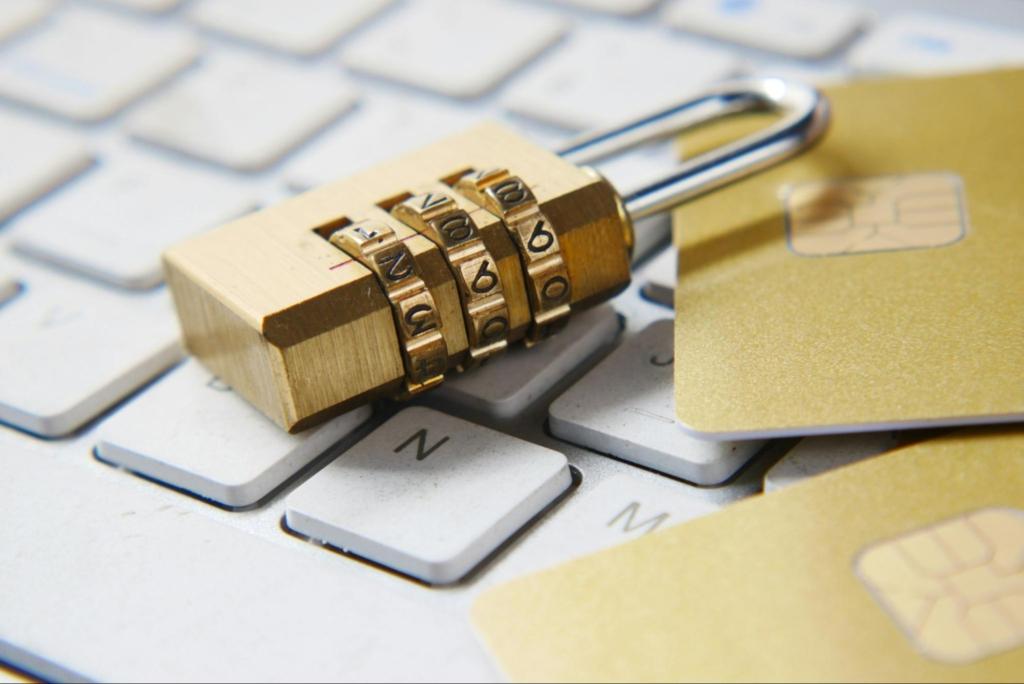Start Building Your Child’s Credit
With identity theft cases on the rise, safeguarding your identity has become a major concern. Many people have turned to popular identity protection services like LifeLock for peace of mind due to their wide array of ID monitoring and protection features. However, another effective and popular way to protect your finances from identity criminals is to request a credit freeze.
If you’re looking to combine the benefits of both options, you may wonder if there’s a LifeLock credit freeze feature you can try. In this guide, we’ll tell you all you need to know about LifeLock and credit freeze and provide alternative options to keep you secure from ID theft.
Can LifeLock Freeze Your Credit?
While LifeLock provides numerous identity theft protection services, such as credit monitoring, dark web monitoring, and fraud alerts, a credit freeze isn’t a part of its offer. A simple reason for this is that requesting a credit freeze is free—you can request it on your own from any of the three major credit bureaus:
- Equifax
- Experian
- TransUnion
However, LifeLock offers a free credit lock service at TransUnion as part of its higher-priced plans.
What Is a Credit Freeze?
Freezing your credit means restricting access to your credit report so no one can see your information until you unfreeze it. This is a great way to prevent identity theft and safeguard your finances from getting into the wrong hands. Even if identity criminals obtain your personal information, they won’t be able to use it to check your credit, which will likely deter them from opening fraudulent accounts in your name.
You can request a credit freeze online or over the phone for free, and the process takes just a few minutes, although the freeze activation may take a bit longer. Once you freeze your report, you’ll get a password or a PIN that you’ll need to use when you decide to unfreeze your credit.
When To Use a Credit Freeze
You should freeze your credit if you believe your personal information has been compromised—like in the case of the 2022 LifeLock data breach. You can also use a credit freeze to prevent identity theft, even if your information hasn’t been exposed.
All three major credit bureaus also let you freeze and unfreeze your or your child’s credit for free. If you want your information fully protected, consider freezing your credit report at all three bureaus instead of just one.
How To Freeze Your Credit
If you want to freeze your credit, you must contact all three credit bureaus and request a credit freeze. The credit freeze process differs depending on how you submit a request. If you submit a credit freeze request online or by phone, agencies must freeze your credit report within one business day, but if you submit it by mail, the deadline is three business days.
Here’s how the process works in all three cases:
- Online—Visit the bureau website and create an account. You’ll have to provide personal information like your or your child’s name, date of birth, and Social Security number (SSN). You can then freeze and unfreeze your credit online, no PIN needed
- By phone—Call the credit bureau’s customer support and provide the personal information they request. Some bureaus require you to use a one-time PIN or answer security questions to confirm your identity before you can freeze your credit. You may also receive a PIN you must use to freeze/unfreeze your credit
- By mail—Fill in a credit freeze request form and mail it to the credit bureau’s official mail address. The information you should include typically involves your full name, birthdate, SSN, addresses, a government-issued ID card, and a utility bill, but you’ll find specific details on each bureau’s site
Find details on how to contact each credit bureau in the table below:
| Option | Equifax | Experian | TransUnion |
| Online | Equifax Credit Freeze | Experian Freeze Center | TransUnion Credit Freeze |
| Phone | 1-800-685-1111 | 1-888-397-3742 | 1-888-909-8872 |
| Equifax Information Services LLC, P.O. Box 105788, Atlanta, GA 30348-5788 | Experian Security Freeze, P.O. Box 9554, Allen, TX 75013 | TransUnion LLC, P.O. Box 2000, Chester, PA 19016 |
What Is a Credit Lock?

A credit lock helps you restrict access to your credit report, but you can unlock it from your computer or mobile device whenever you want to access it. Your credit lock lasts until you decide to unlock it, and the activation is usually instant. If you lock your credit, you typically receive alerts of any changes or suspicious activity on your report. This service is only free at Equifax, while the other two bureaus require a fee:
- TransUnion—$29.95 per month as part of the bureau’s credit monitoring services
- Experian—$24.99 per month, but the first seven days are free
When To Use a Credit Lock
Credit locks are best used as a preventive measure to protect your data. They’re not governed by federal law, so there’s no guarantee that there won’t be any errors in the service, according to each bureau’s service agreement. This is why a credit freeze may be a better option if your information has already been compromised.
If you’re looking for a more convenient way to keep your credit report safe, you should opt for a credit lock. It makes shopping for a car or a house easier—you can allow lenders access to your report and instantly lock it again.
While this service usually isn’t free, it’s most effective if you activate it at all three bureaus.
How To Lock Your Credit
You can lock your credit by signing up at each bureau’s website and using their respective apps to lock and unlock your credit report. Here’s how it works:
- Equifax Lock & Alert—The bureau lets you control your credit report and files for free through its Lock & Alert product. To use it, you have to sign up and lock your credit by swiping a credit lock button
- TransUnion Credit Monitoring—You can subscribe to this service to place a lock on your credit for as long as you’re renewing your subscription
- Experian CreditLock—You can lock your credit by subscribing to the Experian CreditWorks service and unlock it with a click of a button when you need to
Each provider lets you switch your settings from “Locked” to “Unlocked” from your mobile or desktop app.
LifeLock vs. Credit Freeze—Which Option Is Better?

Choosing between freezing or locking your credit depends on your personal needs and budget. A credit freeze is free, and it’s a more secure option since it’s guaranteed and controlled by the federal government. If someone illegally accesses your credit report, you shouldn’t face any financial liabilities.
Meanwhile, LifeLock offers a credit lock service at TransUnion as part of its Advantage and Ultimate Plus plans for individuals and families. Here’s a pricing breakdown of these plans:
| Plan | Individual | Family (Two Adults) | Family (Two Adults and Five Children) |
| Advantage | $24.99/month | $47.99/month | $59.99/month |
| Ultimate Plus | $34.99/month | $69.99/month | $81.99/month |
While LifeLock offers a credit lock option on some of its plans, it’s more expensive than its competitors. LifeLock’s offer may work for you if you’re looking for a credit lock option rather than a credit freeze and are willing to pay more for the service. However, if you only want to lock your credit, doing so directly at TransUnion is a more cost-effective solution, as the monthly fee for this is $29.95.
What Are the Downsides of LifeLock vs. Credit Freeze?
While both using LifeLock and placing a credit freeze can help you protect your identity from theft, both options have their downsides. Take a look at a detailed breakdown of their cons before exploring alternative solutions.
LifeLock Downsides
Although LifeLock is a popular identity theft protection service, it comes with several shortcomings:
- Expensive plans and high renewal rates—LifeLock is among the most expensive ID protection services, and the prices of its plans increase significantly after only one subscription year
- Limited features on lower-tier plans—The provider’s standard plan doesn’t include credit monitoring at all three bureaus, among other features that are only available in more expensive plans. The ID theft insurance coverage is also lower (up to $25,000 only)
- Potential user experience issues—Some users find it difficult to navigate to customer service on LifeLock’s website
- Data breach concerns—A data breach that occurred at LifeLock in 2022 compromised the data of millions of its customers, leading many to reconsider the safety of using this service
Credit Freeze Downsides
The main advantage of a credit freeze is that it’s free. Still, freezing your credit comes with a few drawbacks:
- It takes extra work—While activating a credit freeze is a quick process, managing a credit freeze may take extra time and effort since you have to do it at each bureau separately. This means you’ll need to log onto each site to freeze and unfreeze your credit every time you want to obtain a loan or apply for new credit accounts
- It can’t fully protect you—A credit freeze can protect you from identity criminals who want to open fraudulent accounts or obtain loans under your name. However, if someone gains access to your or your child’s SSN or your credit card information, they can still commit credit fraud
- Your insurance rates may increase—You must remember to inform your insurance agent if you activate a credit freeze. Some companies base insurance rates on your credit score, so you may receive a higher rate because of a credit freeze if you don’t inform them
What Are Credit Freeze Alternatives?

If you don’t want to use LifeLock or place a credit freeze to protect your identity or credit information, you can consider the following options:
- Rely on fraud alerts
- Conduct frequent credit checks
- Use an affordable identity theft protection service
Rely on Fraud Alerts
Placing a fraud alert on your credit report informs the lenders that they must contact you and verify your identity before extending new credit. This way, if identity criminals attempt to borrow money or get a new credit card in your name, the call from the lender serves as a warning sign so that you can take action.
There are three types of credit fraud alerts:
- Fraud alert—This basic type of fraud alert is available to any consumer, and you don’t have to have been a victim of identity theft to request it. It lasts for a year and is renewable
- Extended fraud alert—This fraud alert lasts for seven years and is only available to identity theft victims who’ve filed a report with the police or at IdentityTheft.gov
- Active-duty fraud alert—This type of alert is designed for military service members. It lasts for a year, but you can renew it for the length of deployment
Conduct Frequent Credit Checks
If you choose not to freeze your credit, you should request credit reports from any of the three major credit bureaus every year. This way, you’ll be able to spot any suspicious activity or unexpected changes in your report and take action accordingly. Requesting credit reports is free, and you can even do it multiple times a year.
Besides credit reports, you should regularly review your bank and credit card statements since credit card fraud is the most common type of identity theft in the U.S. This is because identity criminals use stolen credit card numbers or bank account information to make small changes that aren’t easily noticeable. However, you can prevent this by keeping up with your statement cycles and notifying your financial institution if your statement is late.
Use an Affordable Identity Theft Protection Service
Using an identity theft protection service is the best way to protect your identity as these providers typically include more comprehensive ID protection features that a simple credit freeze can’t measure up to. While there are numerous identity protection services available, not all of them are affordable, and their features aren’t always the same in quantity and quality. For example:
- Popular options like LifeLock and Identity Guard are more expensive than their competitors
- Other services like ID Resolve don’t offer any features for child identity protection
For an affordable identity monitoring and protection solution that helps protect your whole family, consider FreeKick. This service offers features like SSN, credit profile, and dark web monitoring and provides up to $1 million in ID theft insurance coverage if your identity gets stolen. Plus, the service helps protect your children from identity theft and assists them in building a strong credit score.
Protect Your Family From the Risks of Identity Theft With FreeKick
Provided by Austin Capital Bank, FreeKick is a deposit account combined with identity protection and parent-sponsored credit building services. The identity protection features cover up to two adults and six children between the ages of 0 and 25, while the credit building feature helps children aged 13 to 25 establish a strong credit score.
Identity Protection Services
Child identity theft costs U.S. families around $1 billion annually, and statistics show that a child’s identity is stolen every 30 seconds.
To protect your child from the risks of identity theft, FreeKick provides a wide range of features for both minors and adults:
| Services for Adult Children and Parents | Services for Minor Children |
| Credit profile monitoring SSN monitoring Dark web monitoring for personal information Up to $1 million identity theft insurance Full-service white-glove concierge credit restoration Lost wallet protection Court records monitoring Change of address monitoring Non-credit (Payday) loan monitoring Free FICO® Score monthly FICO® Score factors Experian credit report monthly | Credit profile monitoring SSN monitoring Dark web monitoring for children’s personal information Up to $1 million identity theft insurance Full-service white-glove concierge credit restoration Sex offender monitoring—based on sponsor parent’s address |
Parent-Sponsored Credit Building and Credit Profile Monitoring
You can improve your child’s creditworthiness as early as the age of 13 through FreeKick’s credit building service. If your child establishes a good credit score early, they can potentially save over $200,000 throughout their lifetime. All you need to do is activate credit building in your account dashboard when your child turns 13. Once they reach legal age, they can activate credit reporting and have their credit history reported to the three major credit bureaus.
Here’s how to get started:
- Create a FreeKick Account—Go to FreeKick.bank, register your account, and choose a plan that suits your needs and budget
- Set It and Forget It—Once you activate credit building, FreeKick will create a 12-month credit history for your child using a no-interest installment loan
- Keep Growing—After the 12-month period ends, you can either renew your account and continue building your child’s credit or close it and get a full refund of your initial deposit
FreeKick Pricing
FreeKick’s pricing plans are designed to meet all families’ budgets, and both plans are FDIC-insured up to $250,000. Find more details below:
| FDIC-Insured Deposit | Annual Fee |
| $3,000 | $0 (Free) |
| No deposit | $149 |
Secure the identities of your whole family and establish a strong financial foundation for your children—sign up for FreeKick today.

Freekick provides a double dose of financial empowerment and security for your whole family. It helps teens and young adults build strong credit profiles and offers identity motoring for up to two adult parents and six children under 25.





